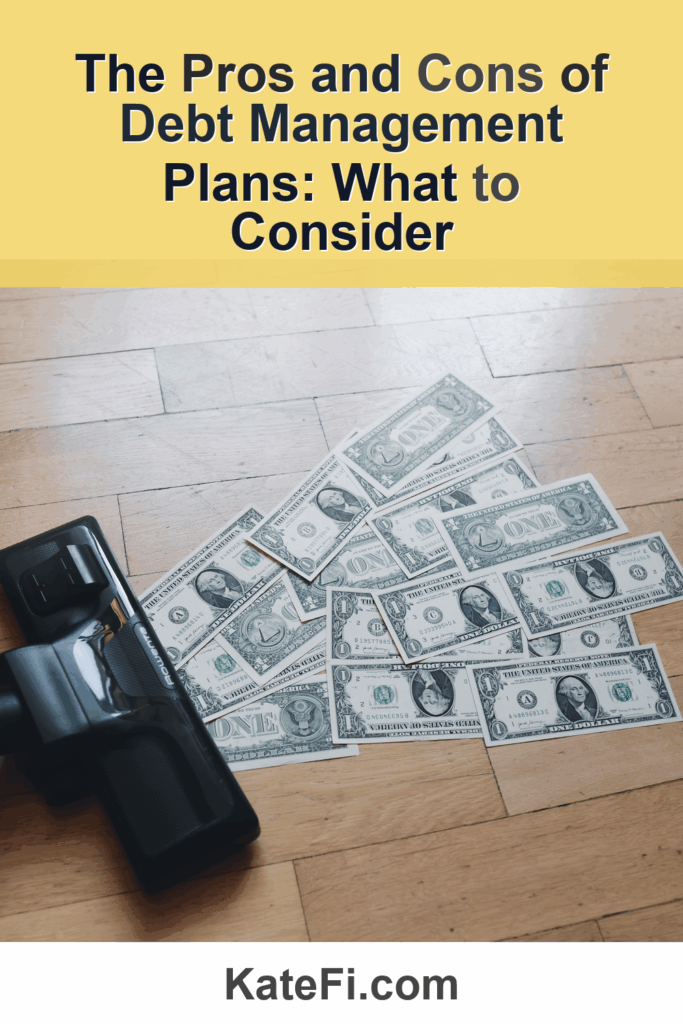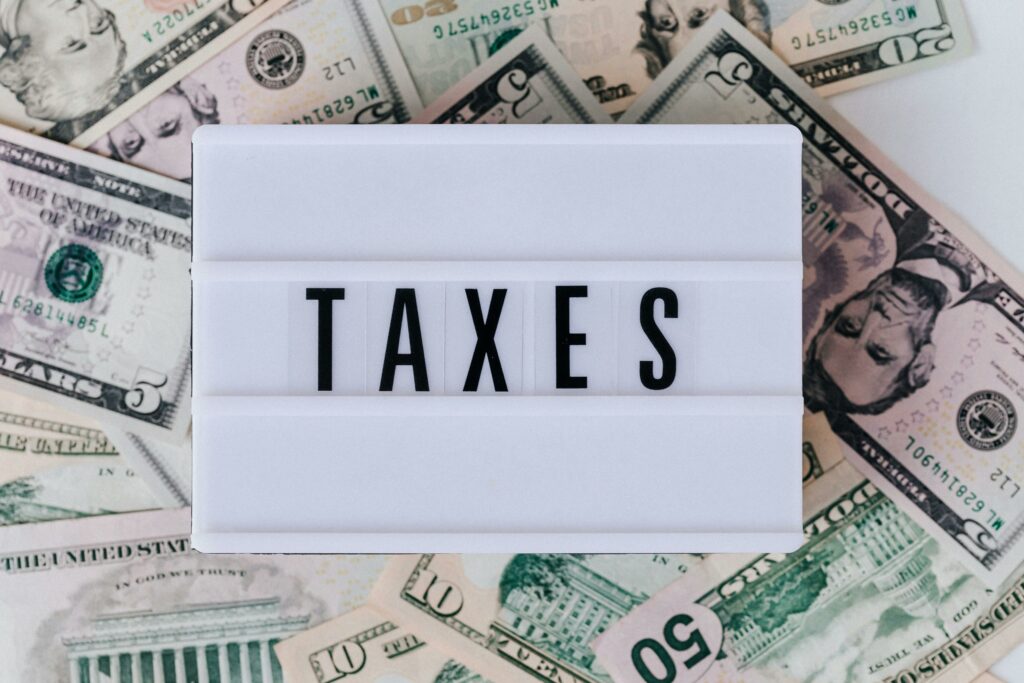Understanding the Legal Implications of Debt Settlement: What to Know
Life can be unpredictable, and financial challenges often catch us off guard. For Sarah, a 32-year-old graphic designer, it was a single medical emergency that turned her manageable credit card debt into a mountain of financial stress. With mounting bills and no clear way out, she began exploring debt relief options. After weeks of research, she stumbled upon debt settlement and wondered if it could be the key to her financial recovery.
Love our content? Show your support by following us — pretty please!🥺
FOLLOW ON PINTEREST
Hi! I’m Kate, the face behind KateFi.com—a blog all about making life easier and more affordable.
But as Sarah quickly discovered, the path to debt relief is littered with legal implications, potential pitfalls, and critical decisions that could affect her financial future. In this post, we’ll follow Sarah’s journey, highlighting the lessons learned and offering practical advice for anyone considering debt settlement.
✅ See If You Qualify for Debt Relief
The Reality of Debt: Understanding the Snowball vs. Avalanche Methods
👉 Start Your Free Debt Relief Review
Not available in IL, KS, OR, TN, UT, WV.
Before Sarah dove into the world of debt settlement, she had heard about two popular methods for paying down debt: the snowball and avalanche methods. Each approach has its benefits and potential downsides, depending on a person’s financial situation and temperament.
The Snowball Method:
This strategy encourages individuals to focus on paying off their smallest debts first. By tackling small amounts, individuals often experience psychological wins that can boost motivation. However, it may lead to higher overall interest payments over time.
The Avalanche Method:
In contrast, the avalanche method suggests paying off debts with the highest interest rates first. While it can save money in the long run, it often requires more discipline and can be demotivating as smaller debts remain unpaid.
As Sarah pondered her options, she realized she needed a clear understanding of her financial situation. After a detailed consultation with a debt counselor, she learned how each method could realistically affect her timeline and total repayment amount. This step proved crucial in making informed decisions about her debt relief journey.
The Process of Debt Settlement: What You Need to Know
What You’ll Learn on the Call
- Estimated timeline and monthly payment range
- How credit may be affected in the short term
- What documents to gather to move faster
Not available in IL, KS, OR, TN, UT, WV.
Debt settlement involves negotiating with creditors to reduce the total amount owed, typically in a lump sum. However, this method comes with its own set of legal implications and potential risks. Sarah learned that:
- Tax Implications: Any amount forgiven through debt settlement may be considered taxable income by the IRS, leading to potential tax liabilities.
- Creditor Responses: Not all creditors are willing to negotiate, and some may take legal action if you fall behind on payments while seeking settlement.
- Impact on Credit Score: Debt settlement can negatively affect your credit score. Although it might provide immediate financial relief, the missed payments leading up to the settlement could leave a long-lasting mark on your credit history.
To navigate these complexities, Sarah found it beneficial to have a trusted debt counselor by her side. They helped her prepare for conversations with creditors and offered guidance on how to approach settlements effectively.
✅ See If You Qualify for Debt Relief
The Timeline: Realistic Expectations for Debt Settlement
Lower Your Unsecured Debt
If you have $5,000+ in credit card or personal loan debt, a free consult can review options like settlement or hardship plans.
- One-on-one call to review your debts and goals
- See potential monthly payment reductions
- No obligation to enroll
Not available in IL, KS, OR, TN, UT, WV.
Sarah was keen to understand how long it would take to settle her debts. The timeline for debt settlement can vary greatly based on factors such as the total amount owed, creditor responses, and negotiation skills. On average, it can take anywhere from 6 months to 4 years to achieve a debt settlement.
| Debt Settlement Timeline | Factors Affecting Timeline |
|---|---|
| 6-12 months | Small debts with responsive creditors |
| 1-2 years | Larger debts, mixed creditor responses |
| 2-4 years | Complicated cases with multiple creditors |
During her counseling sessions, Sarah learned to set realistic expectations and to plan for contingencies. A good counselor will ensure you understand the potential timelines and keep you informed throughout the negotiation process.
Gathering Essential Documents for a Smooth Process
As Sarah continued on her journey, she realized the importance of gathering all necessary documentation to facilitate quicker negotiations. Here are key documents to prepare:
- Income Statements: Recent pay stubs, tax returns, and any other income sources.
- List of Debts: Detailed information about each debt, including the creditor, total owed, and monthly payment amounts.
- Budget Plan: An outline of monthly expenses to help assess what amount could realistically be offered for settlement.
- Communication Records: Documentation of any prior negotiations with creditors, including correspondence and notes from conversations.
Having these documents ready can streamline the review process, making it easier for your counselor to provide accurate advice tailored to your situation.
✅ See If You Qualify for Debt Relief
Questions to Ask Your Debt Counselor
Understand pros/cons of settlement vs consolidation vs DMP for your exact mix of debts.
Not available in IL, KS, OR, TN, UT, WV.
Sarah’s experience highlighted the significance of a strong counselor-client relationship. As she moved forward, she compiled a list of essential questions to ensure she was getting the most out of her consultations:
- What fees are associated with your services?
- What is your approach to negotiating with creditors?
- How will this process affect my credit score?
- What should I expect regarding the timeline of the settlement?
- Are there alternatives to debt settlement that may be beneficial for my situation?
Asking the right questions will empower you to take control of your financial future. Don’t hesitate to seek clarification and advocate for your needs.
Lessons Learned: Navigating the Road to Debt Relief
Through her journey, Sarah gleaned several critical lessons:
- Know Your Rights: Understanding consumer protection laws is essential when dealing with creditors. Be aware of what they can and cannot do.
- Don’t Rush: While the allure of quick debt relief is tempting, rushing into decisions can lead to poor outcomes. Take the time to research options thoroughly.
- Stay Organized: Keeping all documents and communication well-organized can save time and reduce stress throughout the settlement process.
- Get Professional Help: Whether it’s a credit counselor or a debt settlement expert, having professional guidance can help navigate complexities and improve chances of a favorable outcome.
- Consider Long-Term Impact: Focus on both immediate relief and long-term financial health. Balance short-term needs with your future financial goals.
As Sarah approached the finish line in her debt settlement journey, she felt empowered and informed. She realized that while the road was challenging, the lessons learned would serve her well into the future.
✅ See If You Qualify for Debt Relief
Important: This content is for education only—not legal, tax, or financial advice. Results and eligible programs vary by situation and state. Fees apply if you enroll and complete a program. Debt relief can affect credit; missed payments may lead to collections/lawsuits. Not available in IL, KS, OR, TN, UT, WV.
In conclusion, the journey to financial freedom can be daunting, but it is entirely achievable. By understanding the legal implications of debt settlement, gathering the right documentation, and working closely with a knowledgeable counselor, you can chart your course toward relief. For those like Sarah who find themselves in similar situations, taking the first step is often the hardest, but it is also the most crucial. Take charge of your financial future today by getting a free consultation to review your options!






















